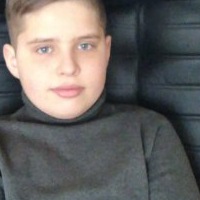
Корень мой находится в "цене", В "очерке" найди приставку мне, Суффикс мой в "тетрадке" все
встречали, Вся же - в дневнике я и в журнале. найти глаголы 3 лица и поставить к ним вопросы 0
0
 0
0
Ответы на вопрос
 Внимание! Ответы на вопросы дают живые люди. Они могут содержать ошибочную информацию, заблуждения, а также ответы могут быть сгенерированы нейросетями. Будьте внимательны. Если вы уверены, что ответ неверный, нажмите кнопку "Пожаловаться" под ответом.
Внимание! Ответы на вопросы дают живые люди. Они могут содержать ошибочную информацию, заблуждения, а также ответы могут быть сгенерированы нейросетями. Будьте внимательны. Если вы уверены, что ответ неверный, нажмите кнопку "Пожаловаться" под ответом.

 0
0
 0
0

 0
0
 0
0

 0
0
 0
0

Analysis of the Given Text
The given text appears to be a riddle or puzzle involving words and their components. It mentions a root, a prefix, and a suffix, and suggests finding verbs in the third person and asking questions about them. Let's break down the text and analyze it further.- "Корень мой находится в 'цене'" (My root is found in 'цене') - "В 'очерке' найди приставку мне" (In 'очерке', find my prefix) - "Суффикс мой в 'тетрадке' все встречали" (My suffix is encountered in 'тетрадке') - "Вся же - в дневнике я и в журнале" (But I am found in both 'дневнике' and 'журнале')
Based on this information, we need to identify the root, prefix, and suffix in the given words and find verbs in the third person to ask questions about them.
Identifying the Root, Prefix, and Suffix
1. "Цене" (цена) - The root is "цен" (цена means "price" in Russian). 2. "Очерке" (очерк) - The prefix is "о" and the root is "черк" (очерк means "essay" in Russian). 3. "Тетрадке" (тетрадка) - The suffix is "ка" and the root is "тетрад" (тетрадка means "notebook" in Russian). 4. "Дневнике" (дневник) - The root is "дневн" (дневник means "diary" in Russian). 5. "Журнале" (журнал) - The root is "журнал" (журнале means "magazine" in Russian).Finding Verbs in the Third Person
To find verbs in the third person, we need to look for words that end in specific verb conjugations. In Russian, verbs in the third person singular typically end in "-ет" or "-ит". Let's find some examples and ask questions about them.1. "Находится" (находиться) - The verb "находится" is in the third person singular. We can ask: "Что находится?" (What is found?). 2. "Найди" (найти) - The verb "найди" is in the second person singular imperative form. We can ask: "Что нужно найти?" (What needs to be found?). 3. "Встречали" (встречать) - The verb "встречали" is in the third person plural. We can ask: "Кого они встречали?" (Whom did they meet?).
Summary
In summary, the given text is a riddle or puzzle involving words and their components. It mentions a root, a prefix, and a suffix, and asks to find verbs in the third person and ask questions about them. We identified the root, prefix, and suffix in the given words and found verbs in the third person to ask questions about them.- Root: "Цен" (цена) - Prefix: "О" - Suffix: "Ка" - Verbs in the third person: - "Находится" (находиться) - Question: "Что находится?" (What is found?) - "Найди" (найти) - Question: "Что нужно найти?" (What needs to be found?) - "Встречали" (встречать) - Question: "Кого они встречали?" (Whom did they meet?)
I hope this helps! Let me know if you have any further questions.
 0
0
 0
0
Топ вопросов за вчера в категории Русский язык
Последние заданные вопросы в категории Русский язык






-
Математика
-
Литература
-
Алгебра
-
Русский язык
-
Геометрия
-
Английский язык
-
Химия
-
Физика
-
Биология
-
Другие предметы
-
История
-
Обществознание
-
Окружающий мир
-
География
-
Українська мова
-
Информатика
-
Українська література
-
Қазақ тiлi
-
Экономика
-
Музыка
-
Право
-
Беларуская мова
-
Французский язык
-
Немецкий язык
-
МХК
-
ОБЖ
-
Психология
-
Физкультура и спорт
-
Астрономия
-
Кыргыз тили
-
Оʻzbek tili















